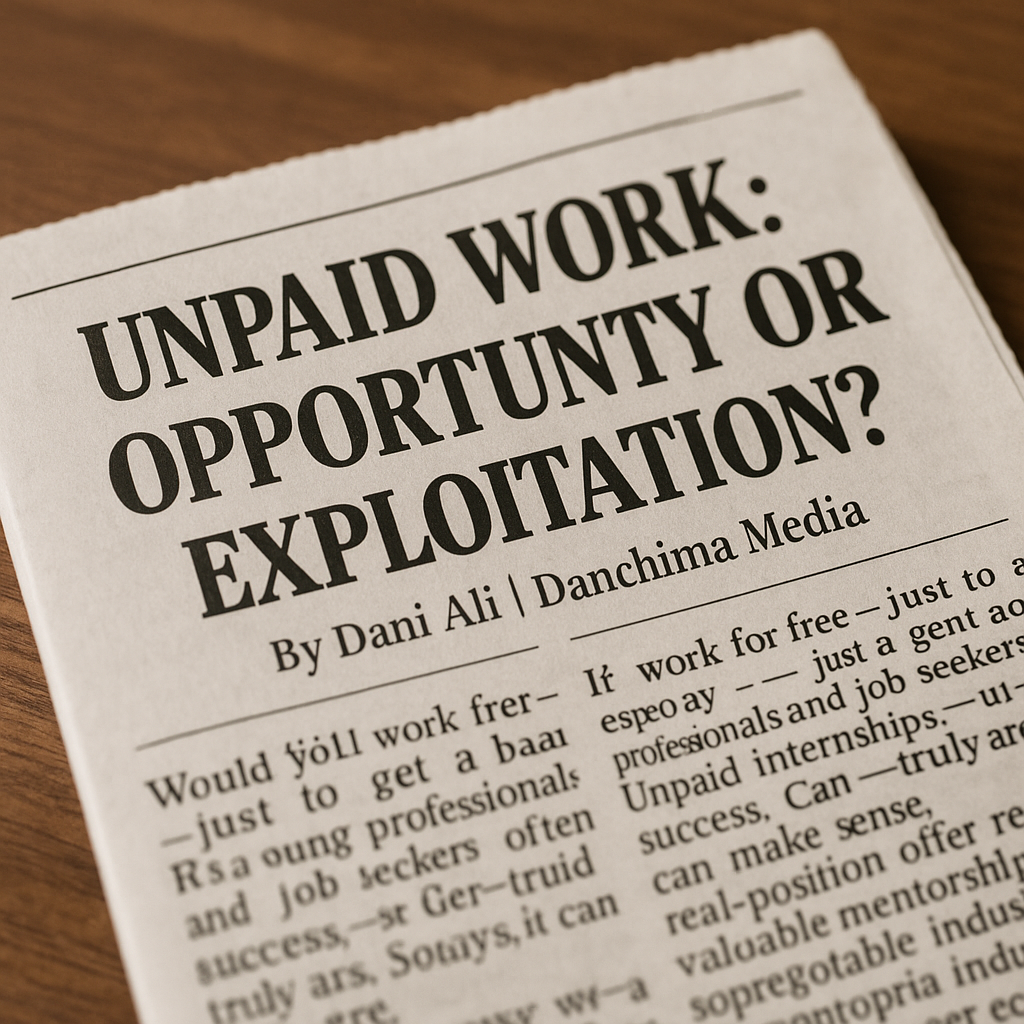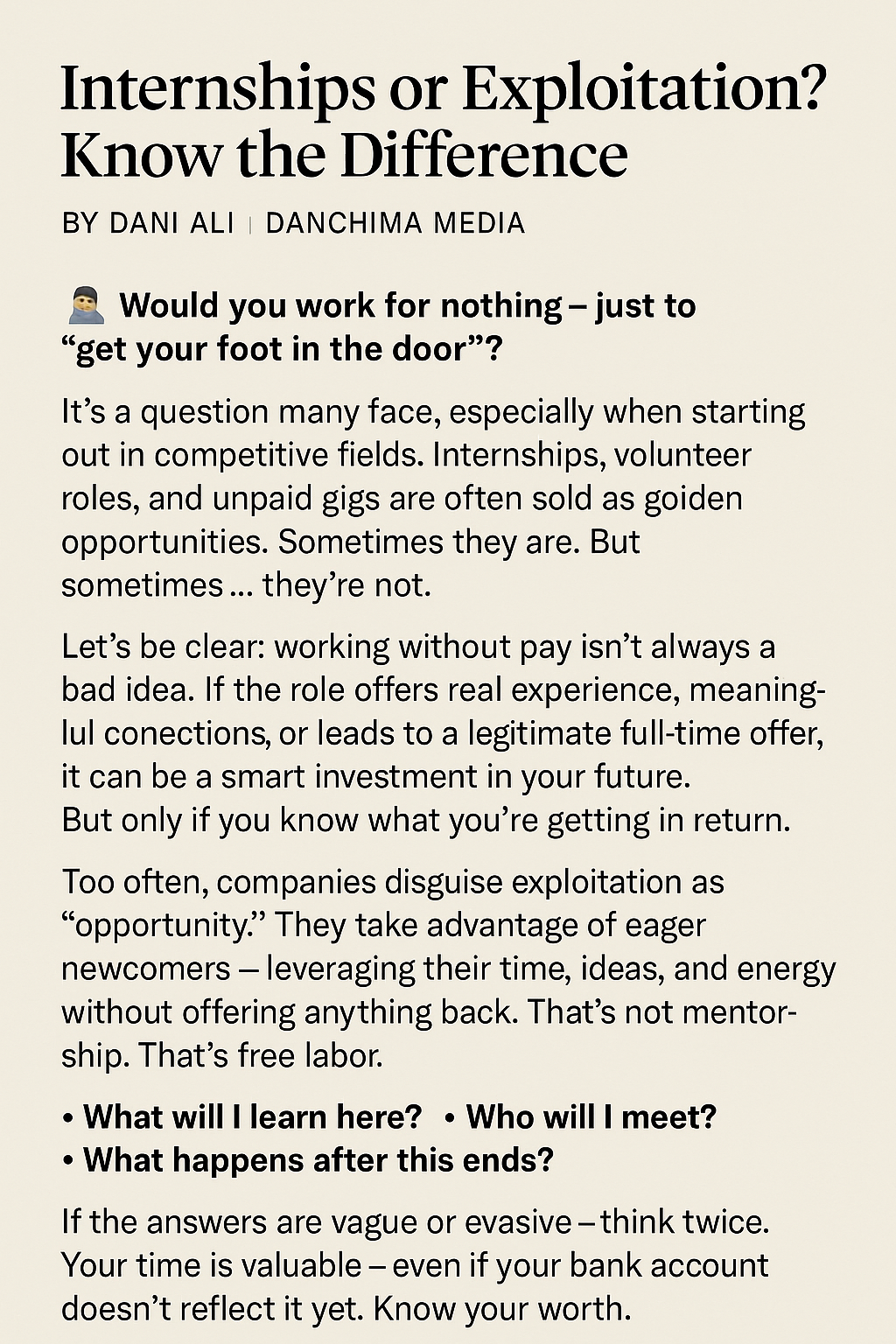
|
Getting your Trinity Audio player ready...
|
👨💻 Would you work for free—just to get a foot in the door?
It’s a dilemma many young professionals and job seekers face. Unpaid internships, volunteer roles, and “exposure gigs” are often framed as stepping stones to success. And sometimes, they truly are. But not always.
Let’s be fair—there are cases where working without pay can make sense. If the position offers real-world experience, strong mentorship, valuable industry connections, or leads to a clear path toward paid employment, it may well be a strategic move. But the key lies in clarity. What exactly are you gaining in return?

Too often, unpaid roles are used as a mask for exploitation. Companies take advantage of ambition and desperation—offering little to no support while extracting time, skills, and labor from those who can least afford to give it away. That’s not opportunity. That’s opportunism.

Before agreeing to unpaid work, ask yourself:
What specific skills will I develop here?
Will I be learning from someone experienced?
Is there a clear possibility for paid employment after this?
If the answers are vague or the expectations unclear, proceed with caution. Your time and energy are assets. Don’t let anyone treat them as expendable.

In an ideal world, every worker would be paid. But in the real one, not all opportunities are created equal. Some can launch a career. Others just drain your potential. The difference? Transparency, value, and respect.
So no—working for free isn’t always wrong. But doing so without clear benefits, boundaries, or purpose? That’s a red flag.
Know what you’re worth—and don’t settle for less disguised as a favor.




